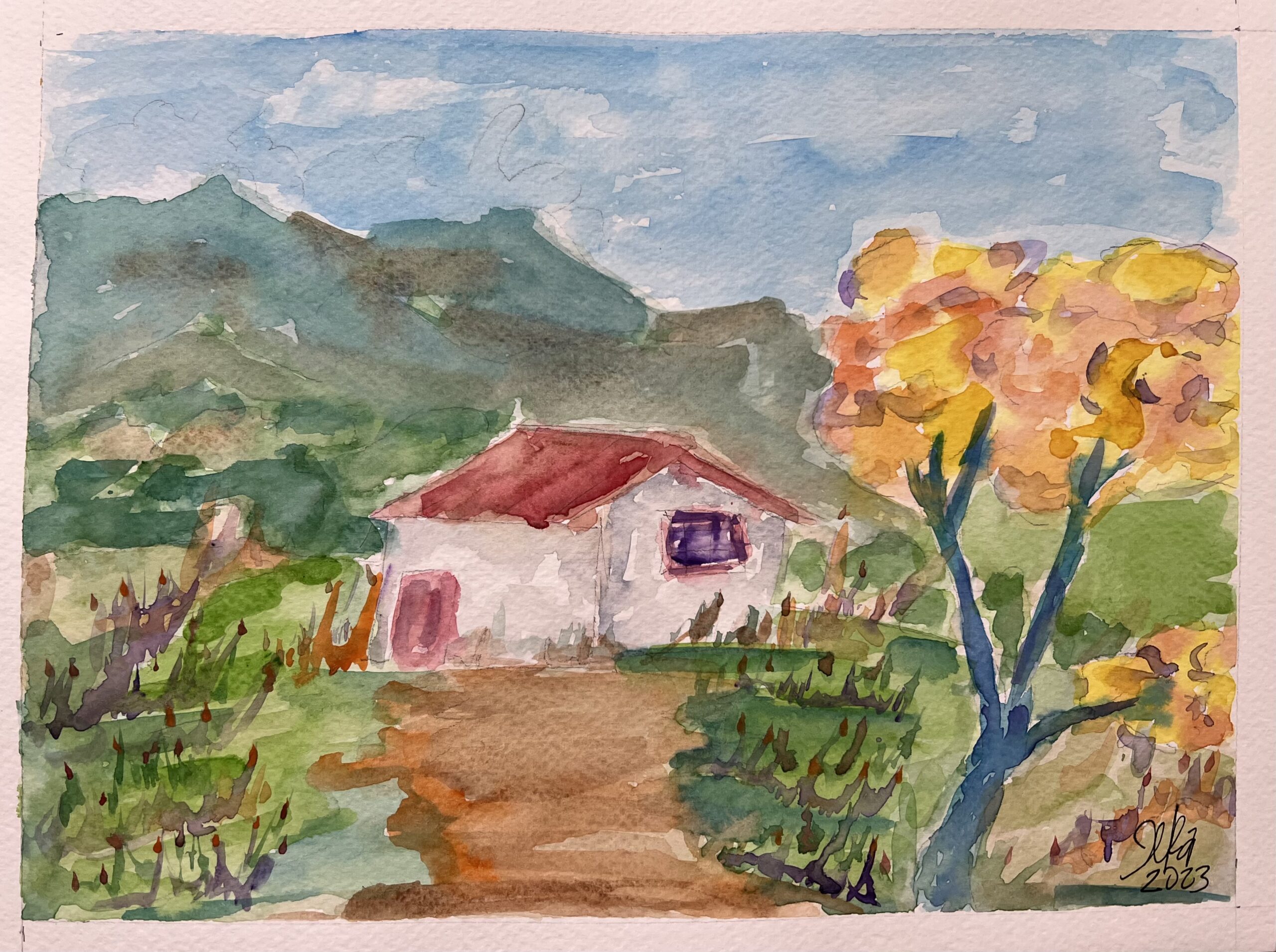Translated by Marvin Najarro
It was three in the afternoon when he finished work at his second job; he had worked from five to ten in the morning in a furniture factory cutting wood; from 11 a.m. to 3 p.m. he works his second job, cleaning offices. In his way for the third job where he works as a busboy in a Lebanese restaurant, he stops at a Mexican supermarket to send his weekly remittance to his family in San Sebastian, Retalhuleu, Guatemala. It is Sunday, but where he lives, he works seven days a week, no matter what.
A long line was waiting for him at the supermarket, there are always people sending remittances at any time, any day of the week. Mexican music is always blasting all over the place; it smells of fried meat, a few steps away there is another line of people waiting to buy the tacos de carnitas, which are the house specialty. He sees the stacks of ripe avocado boxes that will be gone in a blink of an eye, because it is what people buy the most on weekends, the same with tamales that are sold packed in plastic bags, just like nopales pads, something that never ceases to amaze him, because in Guatemala you never eat them, he saw them once when he visited Zacapa; big cactus plants that nobody touched but where he now lives the Mexicans buy them as if they were buying a bunch of tortillas or a bag of bread, it would seem that nopales are the main dish and not an accompaniment of a meal.
At first, as a new immigrant, Hilarión was impressed to see people sending remittances and international mobile recharges to their country of origin, cashed their checks and spent every single penny between the supermarket and the liquor store next door, he never imagined that so many years would pass, and that he would end up doing exactly the same thing as those people he saw when he arrived to that place where it snows, while in his home town the mango threes are at their peak.
Hilarión emigrated when he has just turned 17, with three children to support he left his wife and children at his in-laws’ house and promised to return in two years if he was successful, and was able to make some money to start a business. Twenty-five years have gone by since then, and he has yet to get his youngest child and the youngest of his siblings earn a university degree, he does not plan to return until he accomplishes that goal. In Guatemala he worked in the sugar cane fields, if his body were to be checked over you would still find the cane prickles deeply buried in his skin. He spent his childhood and teenage years in the sugar cane fields working together with his parents and other relatives, sleeping in pens, eating one meal a day, and earning only for the round trip-ticket to his hometown. He does not know how to read or write because school was never an option for a family living in poverty; he had to help his parents to raise his younger siblings. He has noticed that among the person waiting in line to send their remittances there are many like him, in charge of parents, grandparents, younger siblings and children, when he talks with them, they tell him very similar stories, it does not matter which Latin American country they come from; there are even great-grandchildren of the braceros. Hilarión learned about the braceros one day, several years ago, when after sending their remittances he had some beers with a young man whose great-grandparent had been a bracero. He was not the only one bearing the responsibility to support his family; it was the majority of undocumented immigrants, that is why they did not return in two years as they first thought. Like him, they too keep pictures of their children on their cell phones, they could not see them grow up, but through the remittances they sent they contributed in raising them. Through the years he has known many people who have never told their families in their homeland about their living conditions in the United States. He has never told his family that he rents a space in the basement of a house where 15 more undocumented live.
Hilarión leaves the supermarket, it’s been a mild day with the sun visible a times, and the temperatures not so depressing and unbearable. He breathes the fresh air that for a second brought him the scent of corozo and green mangoes of his native San Sebastian. While driving to his third job, and the sun peeking through the gray sky of the American winter, he wonders if the other immigrants were filled with longing in the same way as him.
If you share this text in another website and/or social media, please cite the original source and URL: https://cronicasdeunainquilina.com
Ilka Oliva-Corado @ilkaolivacorado






